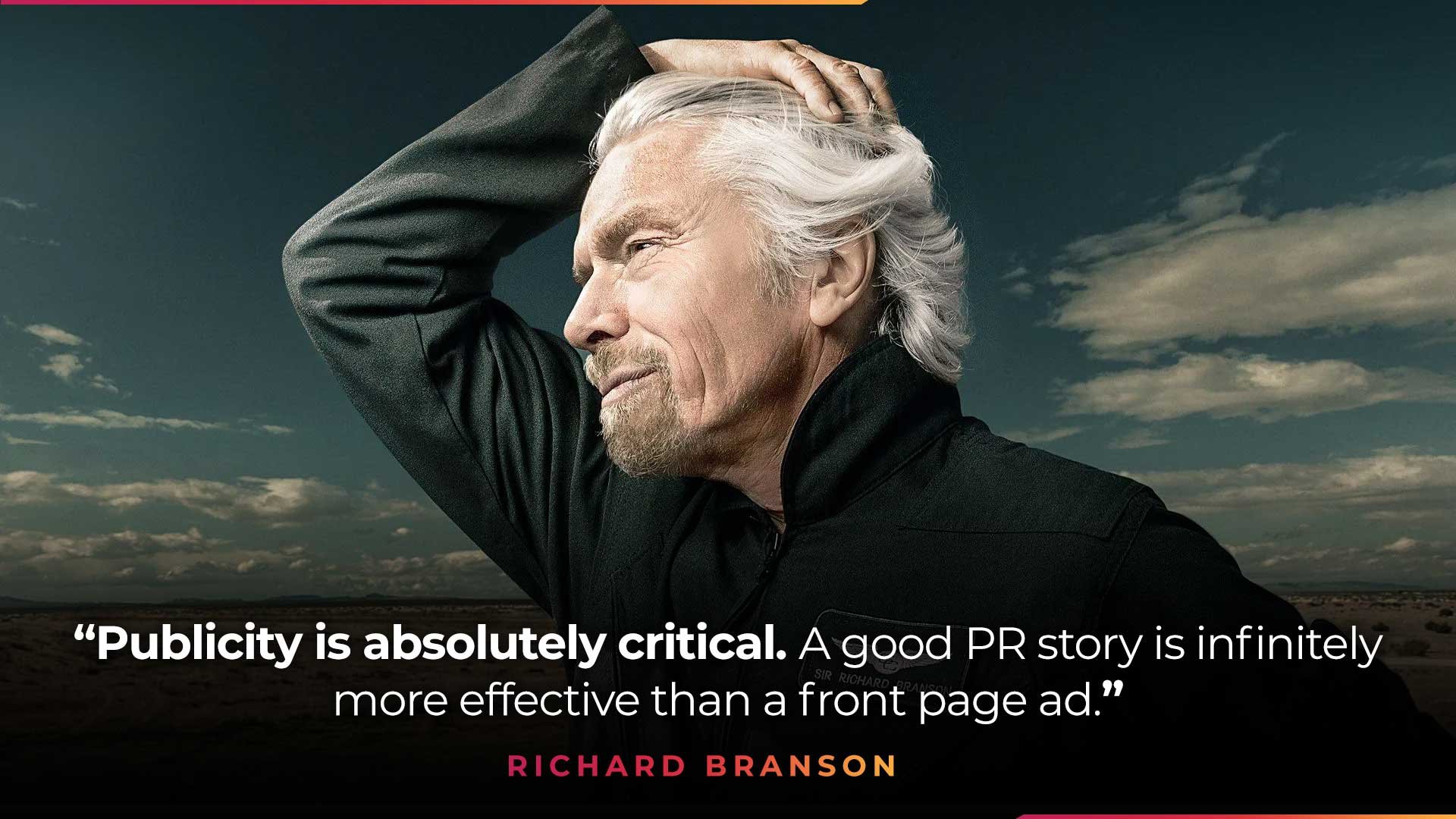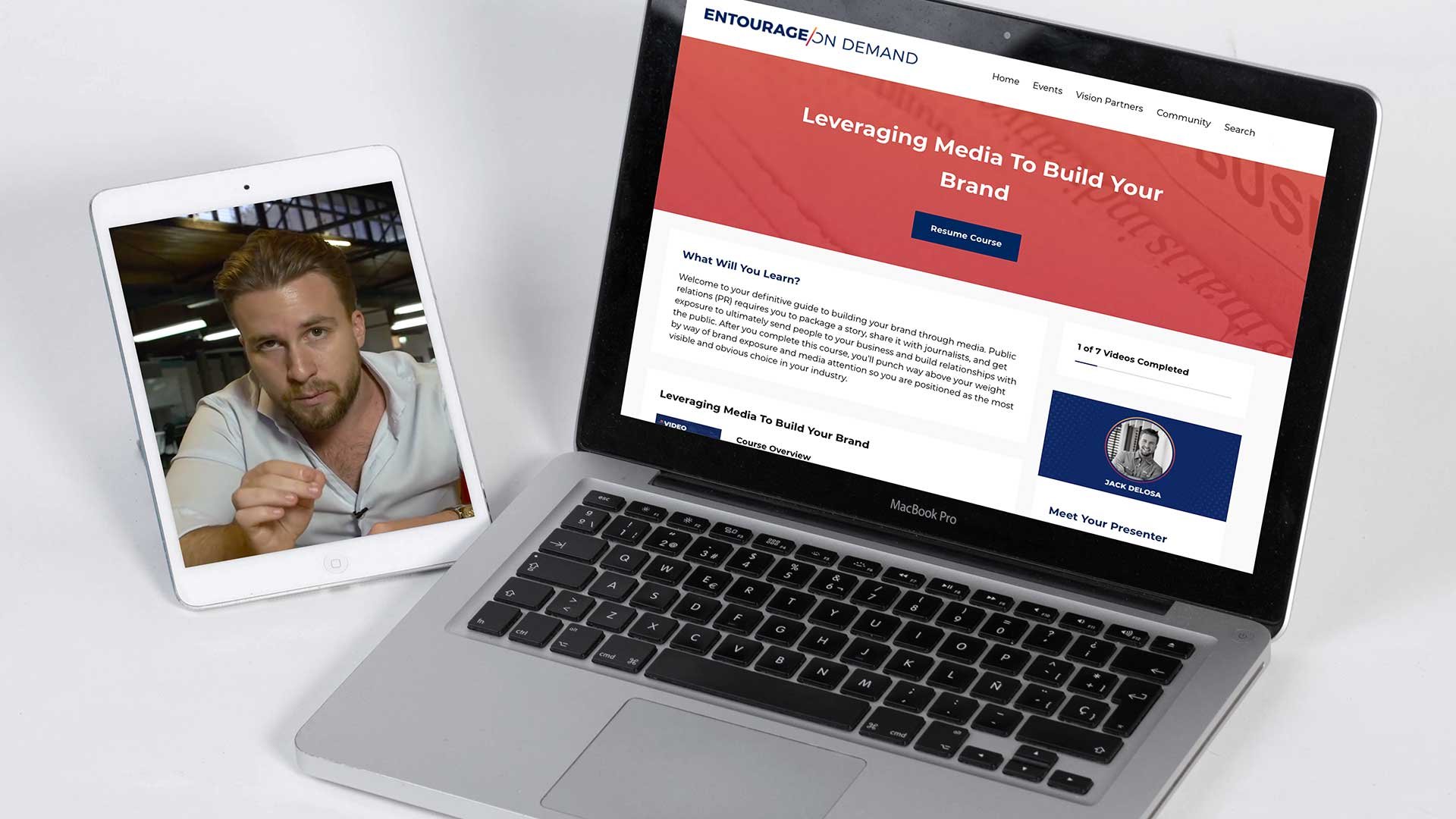In the world of business, you always want to have a positive public persona, to be thought of well by your customer. This is where a good Public Relations (PR) strategy comes in. Public Relations can be smiling and saying hello to everyone so they remember your name. It can be donating to the community and seeing yourself in the local news.
However, Public Relations can be more than this. It can be a targeted strategy with as much money and thought behind it as any successful marketing campaign. This article is going to explain what PR is for your business, and why all good leaders need to be adept with good PR skills for the future success of your business.
What is Public Relations (PR)
Public Relations is how your company relates to the public. It is how you are seen by your consumers, your competition, journalists, anyone not employed by your company.
You need good PR with the outside world as reputation and branding play a massive role in the success of a company. They say even bad PR is good PR, but that isn’t true. And if you’re not seen at all, if you’re not top of mind in a customer’s mind when they’re ready to buy, then you’re missing out massively because your customers will find alternative ways to spend their money.
If competition is high in your field, this can cost you a lot of money. Think of the banks and the Royal Commission in the Financial Planning sector - the image of banks as institutions to help you with your financial future was shattered, and they’re still trying to rebuild their reputation.
There are two ways to view how you approach developing a PR strategy:- PR can be reactive - something bad happens and you need to put out the fires before the news picks up the story and runs with it.
- Or it can be proactive - your business supporting the local community, which can lead to wider awareness of your brand and hence more sales.
HBO Max recently underwent a rebranding, shifting its focus to broaden the appeal of its content library and differentiate itself in an increasingly competitive streaming market. This strategic move highlights the importance of adapting public image and messaging to meet audience expectations. You can learn more about Casey Bloys, the head of content at HBO, who has been instrumental in guiding these changes to ensure the brand remains relevant and engaging to a wider audience. His vision demonstrates how strategic rebranding can drive both viewer engagement and market positioning.
Not sure why you or your business should build your brand? Let us show you why from one of Australia's leading personal branding coaches of executives, entrepreneurs, and even supermodels like Miranda Kerr - Carlii Lyon on this episode of The Make It Happen Show podcast.
What is the purpose of Public Relations?
Why do we need PR? Why do companies hire people such as Public Relations Specialists?
Build credibility
Social proof is a big driver of sales. If you can be shown, in the public eye, to be good at what you do, then the credibility of your brand can grow.
This doesn’t mean you’re looking for any and all media opportunities to get your name out there. Find something authentic to your business, something your brand can connect to.
Are you a landscaping business? Helping a school redesign their playground for fun and safety, with gardens and bark chips can show how skillful you are at landscaping, but is also great PR for example.
Crisis management
If something bad happens, you want to be able to handle the media, handle the damage, get in front of any stories about to leak, and show a way to manage the situation.
Part of crisis management is showing a solution to a crisis. Acknowledge when a mistake has happened, reassure people you are investigating the problem, show that you will work to find a solution. Can you hear the language we’re using? It is reassuring and empathetic language.
Engaging a crisis PR agency at this stage can provide expert guidance in crafting the right messaging and navigating media pressure with confidence and control
Media relations
Part of good PR is a strong relationship with the media. If your business is about to have a big product launch, then you can use your media relationship to send press releases, and get some good news coverage, often for free. Use your PR skills to feed a story to the media, and if they’re having a slow news day, you’re going to find yourself as part of the news.
Employee relations
This is communicating with and encouraging employees within your business. It is cultivating a positive work environment and it is getting the vision of management across in a way that all employees are on board with the plan.
Having good relationships with your employees makes for a happy place to work. It also helps when they go out into the world and say great things about you and your business. They become sales reps for your products and services even more so than they already are.
Don’t be afraid to have anonymous feedback and suggestions. Be reasonable with what you receive of course, but this gives employees a chance to give suggestions and say something without fear of repercussions from management.
This positive relationship should extend to when an employee chooses to leave or find another job. Be happy for them, encourage their professional growth. This will leave a good memory, and they will still speak positively about you out in the wider world.
Don't be afraid to have exit interviews and encourage honesty. If an employee is not happy, take it on board as feedback and an opportunity to improve.
Social Media communications
Social Media is often the first place news hits. It is the preferred channel for many customers to communicate with businesses and to make complaints about a business, in the public eye.
Your social media team should aim to be quick to respond in any positive or negative feedback.
Outside of customer feedback and communication, PR through Social Media is also a fantastic thing. Good news stories posted by yourself that can be liked and shared by your fans, teasing new releases coming up and so much more.
How do you know if your PR is working?
You’ve spent all this time and money and effort into PR, into being positively engaged with your audience, so how do you know if it is working? Are there ways to measure? What defines success for you in PR? Is it a metric or a feeling?
Sentiment about your business
Do people trust you? Would they recommend a friend to you? Do people share happy stories about you?
These questions can be asked of the public and get a metric via a survey if you want. Or you can have a conversation with people and get a feel for the response.
This question can also be asked after a crisis, where your PR team leaped into action to react to bad news. How long does it take people to forgive your brand, to trust you again? Are these sentiments reflected in your cash flow?
Social media mentions
What are people saying on Facebook or Twitter? Are people checking in and tagging your brand? If so, are they good mentions or bad mentions?
You can collect the mentions and have a meeting with the PR team, group the mentions into categories of good, bad, ugly, and build strategies on how to respond to each type, going forward. Using Twilert, businesses can efficiently track social media mentions, analyze sentiment, and respond to online discussions in real time, helping to maintain a strong and positive brand presence.
Social media engagement
Have you received more likes and followers and subscribers from your social media PR efforts? Which posts are attracting the most activity?
This information gives you some leverage over your target audience as you can get a feel for what they like, what they want to hear from you. From this, you can target further campaigns to hit the right buttons to get more positive results.
Increase in backlinks
Are people mentioning you and linking to you from their websites, thanks to your PR efforts? Are these links good or bad for your business?
Good PR can have a positive impact on your SEO through an organic backlink campaign.
Increase in website referral traffic
This is where people follow those links on other websites and click through to your website. Perhaps they want to read the story you’ve published, or they want to donate, subscribe or buy from you, all thanks to good PR being linked from somewhere else.
With this metric, you notice how you haven’t tried to sell anything? People aren’t coming to you because of a great product. They’re coming to you thanks to a good news story, some good PR that you’ve handled.
Key takeaways
PR is about image, be it the business' brand image, or your personal brand image. You always want it to be positive, of course. You also want to be able to handle situations if the PR goes bad. Having a very strong, positive brand image can help when the challenges come knocking.
Good PR can help sales and help marketing. Good PR also helps people to know you, like you, and trust you, which is what is required in this digital age before people will buy from you.
If you want to know more about PR and marketing we have a fantastic course for you to try out all about leveraging the media to build your brand.
Get out there, tell your story, expose your brand to the world and make people love you!
Related Categories
Mariah Klay
As the Head of Brand at The Entourage, Mariah Klay is responsible for all content-led campaigns within The Entourage. Using the world of social media and digital marketing as her playground, she utilises her experience as Content Marketing Manager in Amaysim Australia as well as her developed skills and knowledge to spearhead the content, community and brand management in the team, while supporting the content growth of our members as well.







